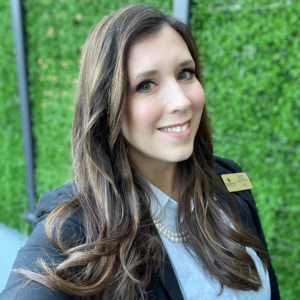One-on-one with…Annette Gunnerson
Activities programming is more than fun and games. The job of the activity professional (AP), Annette Gunnerson says, is to find a way in and connect with residents where they are in that moment. Gunnerson, ADC, CDP, an assisted living/independent living memory care activities coordinator in Annandale, Minnesota, was named the National Association of Activity Professional’s 2017 Activity Professional of the year. She spoke with I Advance Senior Care’s Senior Editor Nicole Stempak about her nearly 30 years in long-term care, including serving as an activity assistant, a certified activity director and certified dementia practitioner.
Do you face any stereotypes about APs?
I encounter the stereotype, “They’re just playing games.” That’s not what we do. APs are trying to make a difference in their facilities. We need to really think about that resident as a human being instead of, “Oh, well, they just live here. We’re here to take care of them.” No. We’re here to meet their needs and to make them feel like a valid human being. It is important to have a schedule, to get them out of their rooms and get them engaged. It gives them purpose. Otherwise, they’re just going to sit in that bed and watch TV 24 hours a day.
How has the role of the AP grown?
Facilities are starting to see how important it is to have that activity staff member. I know facilities that have 18 activity staff members under the coordinator. They’re staffing them because they’re making a difference.
The biggest thing is that we have to work at keeping our seniors engaged and active, starting with independent living (IL) and going to assisted living (AL) and memory care. The more we can communicate the importance of and encourage that participation, the longer we can keep them healthy.
How do you quantify or measure outcomes beyond attendance?
If I can engage with memory care residents and they can respond to what I’m doing, I’ve made a difference in their day. When they thank you for coming, you know you’ve touched their life. If they’re enjoying it, you’re going to know it.
Can you share some examples of successful programming?
They love Pass the Present, it’s like the dice game where you take the dice, grab a prize or steal it. We play with cards. I set aside $20 a month out of my budget toward Pass the Present. I buy chocolate-covered cherries and some snack items. I always get donated items, some from the community but a lot from my seniors in independent living. We’ve done a white elephant one, too. They love it. I’ve done it in memory care as well. It’s a little bit harder in memory care because they don’t like to steal, so I always bring extra presents. I also did a murder mystery meal, and people were crawling out of the woodwork!
Any suggestions for APs with limited budgets?
We have to step out of our comfort zone. We have to use our local businesses. I’ve had them come to the facility. With a small community, a lot of them have had loved ones or friends here. If they know that you’re giving back to their loved ones or their friends, the returns to you are amazing. I work a lot with our local grocery store to get items for our seniors. They know what my budget is. I can’t ask for it for free, but I can work with them to get it cheaper or at cost. Last year, I got residents cheese, crackers and summer sausage for Christmas. Who doesn’t love summer sausage? I also put a lot of notes out—looking for items—to our staff and to the community, trying to pull them in.
How do you see your role changing in the near future?
As far as memory care, I would say it’s going to have to grow. I think our residents need that. I think more and more facilities are seeing how important that piece is. The feeling that they’re heard, validated and understood is an important piece for AL and IL. I see us reaching to get them out, get them involved and get them healthy. They get to be a part of that planning piece, and I think that’s important.
What advice can you give to other APs?
The best thing I can say to APs is to fight for your seniors and share what you know. You have those who are very outspoken like myself and then you have those who are shy going, “I’m just not going to make any waves.” But we have to make waves in order to be heard. We have to, at some point, say, “Hey, I know what I’m talking about, and I really want to share with you how important this is to that senior.”

Nicole was Senior Editor at I Advance Senior Care and Long Term Living Magazine 2015-2017. She has a Journalism degree from Kent State University and is finalizing a master’s degree in Information Architecture and Management. She has extensive studies in the digital user experience and in branding online media. She has worked as an editor and writer for various B2B publications, including Business Finance.
Related Articles
Topics: Activities , Alzheimer's/Dementia , Articles











